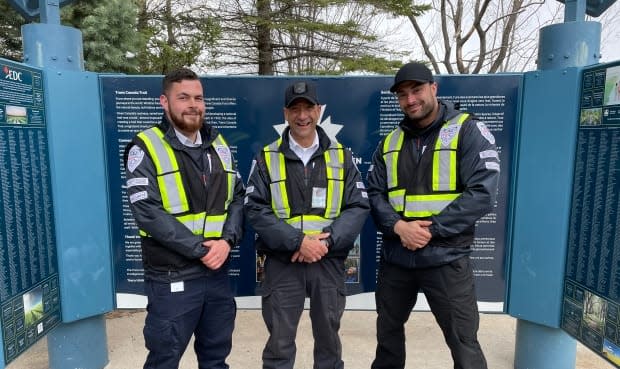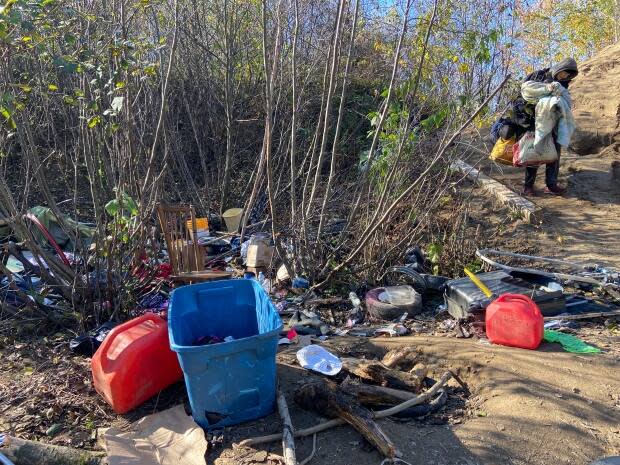Fredericton trail patrol shouldn't bring back 'move along' policy, advocate says

When it comes to homelessness, the goal of Fredericton's new community safety unit is to help people living rough and those using drugs find the right services, according to the city.
But a doctor who works closely with people who use drugs said these services don't exist.
Dr. Sara Davidson said if officers just move people from one place to another, it will make people less visible, more vulnerable and less likely to get access to emergency medical help.
"We don't have a resource centre anymore. There's no warming centre or no cooling centre, there's no permanent spot for people to go," said the director of River Stone Recovery Centre in Fredericton.
"There's no safe-consumption site … So until we put those things in place, where are we moving them to?"

Last week, the city hired eight uniformed private security officers to patrol trails and the downtown areas. The idea for this safety unit came after public consultations with residents and business owners.
The officers' mandate is to address concerns about graffiti and other vandalism, petty thefts under $5,000 and people living rough or panhandling on the streets.
'Who really is at the greatest risk?'
Davidson said people living rough are citizens, too, and aren't just a threat to others. She said public drug use is "certainly is a safety issue for the person who's using the drugs," especially considering the increasingly toxic drug supply.
"My question is who really is at the greatest risk?"
Davidson said it's not that individual officers will be increasing harm, it's that their ability to help is limited if harm reduction and mental health services don't get more resources.
She said it's not one or the other — harm reduction or public safety — it is both. But so far the response has been heavy on the policing side, light on the other, she said. Only Moncton has a safe-consumption site, and shelters are over capacity in most places in the province.
"Not-for-profits are trying to fill giant chasms in our social safety net, which has long eroded, and it's an impossible task," Davidson said.
"Now the cracks are just even wider, and suddenly there's policing and, you know, community safety teams to try to push along this idea that we're going to be able to get back to some kind of pre-homelessness-crisis place, but we're just not."

Shasta Stairs, spokesperson for the City of Fredericton, said the city and the Fredericton Police Force are regularly asking the province to increase the availability and diversity of shelter space, along with space for support services.
"We understand that there are complex needs amongst those who are living rough," she said. "We are working hard with community partners in the housing space to find options."
Community safety officer Seth Hajdu previously told CBC he will be spending a lot of his time talking to people living in tent encampments about city bylaws and making sure they're following the rules, and will also be keeping track of those in need of food and housing.
"When dealing with the homeless, our main goal is to clean up the streets and not just treat the homeless like crap," said Hadju. "We need to give them respect."
Davidson every step will be a Band-Aid until governments start addressing untreated addiction and other mental health issues.
"[The patrol] is not going to deal with the underlying problem and it's not going to make us all be safer in the long run, which is when people are housed."


